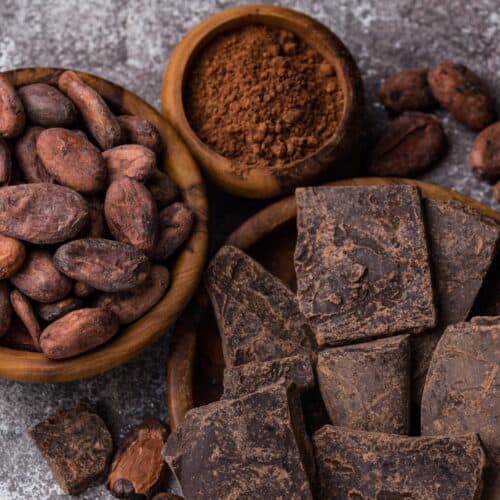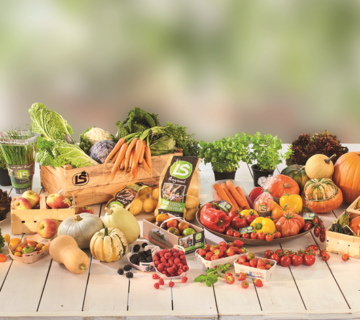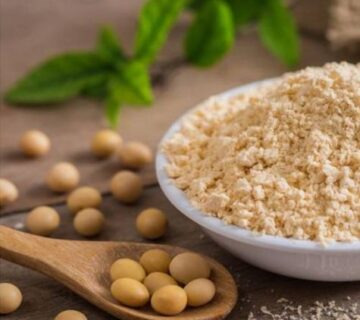When your production line is humming, your coating pans are glazing perfectly, your biscuit dough is colouring just right and the flavour profile is locked—what’s the one ingredient you don’t want to cut corners on? It’s the cocoa powder.
For factories in Türkiye, sourcing the best cocoa powder supplier in Türkiye isn’t just about getting a competitive price; it’s about ensuring consistency, managing supply risk, maintaining product yield and meeting export-grade standards. The right supplier can make the difference between smooth production and last-minute stoppages, wasted batches or consumer complaints.
At MT Royal, we’ve worked alongside production managers, procurement teams and plant supervisors across the country. We’ve seen how switching to a truly reliable supplier transforms line stability and quality output. And while there are many distributors, one name that frequently appears when we discuss premium cocoa powder is the Spanish-origin brand Latamarko—a benchmark players refer to when they want that extra level of performance. In this guide, we’ll unpack how you identify the headline supplier, what to demand, what pitfalls to avoid, and how to extract maximum value especially when your factory runs high volumes, tight tolerances and export deadlines.
What exactly do we mean by “best cocoa powder supplier in Türkiye”?
When you say “supplier”, you’re not just selecting a brand or a bag of powder—you’re choosing a partner who can support your industrial demands: bulk logistics, consistent quality, documentation, and technical support. A top-tier supplier will deliver on five interconnected fronts:
- Quality & consistency (particle size, fat content, alkalisation level, flavour profile)
- Reliable supply chain (stock-holding, predictable lead-times, import/delivery assurance)
- Documentation & traceability (COAs, MSDS, batch tracking, compliance)
- Cost-effectiveness (total cost of ownership: yield, rework, downtime—not just €/kg)
- Technical support & manufacturing fit (understanding your line’s mixing, coating, bakery, beverage applications)
Because factories in Türkiye import essentially all their cocoa powder (there’s no local cocoa bean crop) the role of the supplier becomes central. If your supplier misses a shipment, or quality deviates, it directly impacts production scheduling, scrap levels and ultimately your cost per unit.
Why the Türkiye manufacturing sector demands superior cocoa powder
Let’s talk about your world—large-scale plants, high-throughput lines, tight tolerances. Here are some of the real drivers when you’re choosing a supplier:
Efficient throughput & minimal downtime
In a biscuit line, or a chocolate moulding line, feed consistency matters. If your cocoa powder batch has variable particle size or inconsistent fat content, you’ll see downstream issues: dough viscosity shifts, coating runs slower, product surface finish suffers. A supplier who understands this and offers a powder graded for industrial mixers and continuous blenders adds real value.
Product quality & export-readiness
Many Turkish manufacturers are chasing export markets—Europe, the Middle East, North Africa—and that means stricter specifications: colour consistency, flavour uniformity, allergen/traceability documentation, sometimes even clean-label frameworks. A supplier familiar with these demands (and supplying brands like Latamarko) brings you to a higher plane of performance.
Cost per unit, not just cost per kilogram
It may be tempting to pick the lowest €/kg for cocoa powder—but in our experience, you lose more in rework, manual corrections, downtime and yield loss. A powder from a less capable source might cost less upfront but end up costing more in net production cost. We’ve seen the difference when switching to higher-spec powder reduce scrap by 4-7% and cut downtime by ~8%.
Volume & logistics management
Factories often need 10–50 tonnes of cocoa powder at a time, with frequent replenishment. A supplier must be able to manage import logistics, customs, warehousing, local transport and same-day or next-day dispatch. At MT Royal, we’ve built our network to meet those demands reliably.
How to benchmark the best cocoa powder supplier in Türkiye
Here’s a step-by-step framework you can use to evaluate potential suppliers (including yourself, your team, your internal scorecard). You’ll see where premium brands like Latamarko fit in, and where you might compromise.
Step 1: Define your process needs
- What is your application? Bakery, confectionery, beverage, dairy?
- What fat content do you need? For example high-fat (20-24%) for premium chocolate, lower (10–12%) for bakery or beverage.
- What surface finish, colour, alkalisation level (if Dutch-processed) do you target?
- What mixing/feeding equipment, what flowability characteristics are required?
By pre-defining your needs, you avoid being drawn into “cheap but unsuitable” offers.
Step 2: Request technical documentation
- COA: fat content, moisture, particle size distribution, pH (for alkalised powders).
- MSDS and allergen/cross-contamination certificates.
- Traceability: origin of cocoa beans, batch numbers, processing date.
- Storage and handling guidance: how should the powder be stored to maintain its performance?
Step 3: Evaluate supplier logistics & availability
- Does the supplier hold local stock in Türkiye, or do they import on an ad-hoc basis?
- What is the lead time from order to delivery? Is it predictable?
- How flexible are they on packaging sizes (bulk sacks, drums) and delivery schedules?
- Can they provide service during peak demand or emergencies?
Step 4: Compare total cost of ownership, not just unit price
Use a comparison table as below when discussing with suppliers:
| Supplier | €/kg price | Fat content | Particle size spec | Batch variability % | Lead-time (days) | Estimated yield impact* |
|---|---|---|---|---|---|---|
| Supplier A (lowest price) | €X | 11% | broad | ±3% | 14 | –1.2% |
| Supplier B (premium, e.g. Latamarko via distributor) | €X+10% | 22% | tight | ±0.5% | 7 | +0.8% |
*Yield impact example: due to fewer corrections, less waste, better flow-through.
Here you can see that although Supplier B costs more per kg, the improved yield and reduced downtime may result in a lower effective cost per finished product.
Step 5: Pilot run & specification validation
You should always run a small-scale trial on your process line:
- Check flow, mixing behaviour, coating application (if relevant).
- Measure colour consistency, flavour deviation, dusting in mixers.
- Monitor downstream line speed, rejection rates, de-dusting or clean-up time.
If the supplier is confident in their product (and the brand like Latamarko is proven), they’ll support this step.
Step 6: Contracting & service framework
Once you’ve selected a supplier, ensure the contract covers:
- Price escalation or fixed pricing mechanisms.
- Minimum stock/lead-time guarantees.
- Technical support service (troubleshooting, documentation).
- Quality deviation response: what happens if batch quality is off-spec?
At MT Royal, our contracts often include a technical hotline for production supervisors, because we understand the manufacturing stakes.
Common procurement pitfalls in cocoa powder sourcing (and how to avoid them)
In our years supplying manufacturing plants, we’ve seen repeat mistakes that cost time and money—so you’re forewarned:
Pitfall: Choosing purely on lowest €/kg
This is by far the biggest trap. You might find a cocoa powder at a lower price, but if it lacks the required fat content or flowability, you’ll pay through slower line speeds, more rework, and higher scrap. We always counsel: cheap raw material doesn’t always equate to cheaper finished cost.
Pitfall: Failing to account for fat content variability
Factories using high-fat powders (20–24%) expect richer mouthfeel, better gloss and smoother texture. If a supplier provides a batch at 18% instead of 22%, you’ll have to adjust recipe or accept a downgraded outcome. Worse, you might not catch the shift until after packaging.
Pitfall: Switching suppliers mid-year without re-qualification
Changing suppliers for small cost savings without running trials is risky. We’ve seen batch-to-batch variation increase, causing product inconsistencies and brush-ups on the line. Be sure: any new supplier is qualified the same way as the initial one.
Pitfall: Neglecting logistics lead-times and stock planning
Cocoa powder is imported. Delays in shipping, customs or warehousing can cause your buffer to run out. Especially in peak seasons, you must plan reorder cycles with your supplier. At MT Royal we maintain local stock to help prevent such emergency shortages.
Pitfall: Ignoring traceability/documentation
Export-oriented factories often require full traceability, especially for niche markets (organic, clean label, vegan). A supplier who cannot deliver documentation risks non-compliance and product rejection. Premium brands like Latamarko typically support full documentation and audit readiness.
Why leading manufacturers turn to brands like Latamarko (and to distributors like MT Royal)
In many of our conversations with production managers, one recurring theme surfaced: “Give me consistency, and I’ll manage the rest.” That’s where brands such as Latamarko—a Spanish-origin premium cocoa powder brand—come into play. Spanish engineering has long been respected in industrial circles, and Latamarko exemplifies precision, reliability and traceability.
Here’s what that means for your factory:
- Tighter specifications: batch-to-batch variation in particle size, fat content and colour is minimal. That reduces the need for continuous recipe adjustments.
- Improved flowability: In large mixer feeds, drop-in replacements spend less time in hopper bridging or dusting. That means fewer stoppages or manual clean-ups.
- Higher yield & less waste: Because mixing and coating are more efficient, you get higher first-pass yield.
- Compliance friendly: European origin means full documentation, ethically sourced beans, and lower risk of regulatory surprises.
- Support for premium lines: If your plant produces premium chocolates, export-grade biscuits or high-end coatings, Latamarko fits the specification profile—and a distributor like MT Royal helps you access such brands at competitive pricing through volume and logistics optimisation.
While not every line needs the absolute top brand, for factories demanding high performance, low tolerance variation and consistent brand image, this is where the investment pays off.
Manufacturing-specific considerations when selecting your cocoa powder supplier
Because you are buying for production, not a retail shelf, here are some nuances to bear in mind:
Bulk handling & storage
Large-scale operations often receive 18–25 kg sacks or palletised drums by the tonne. The powder must be stored in a cool, dry, controlled environment (humidity < 65 %, temperature < 25 °C) to prevent clumping, moisture uptake or microbial issues. Even with a high-quality powder, poor storage can degrade performance.
Process line integration
- Does the powder feed through your pneumatic conveying or screw feeder easily?
- How does it behave in your continuous blender? Does it fluidise well?
- Does it mix uniformly in a high-speed ribbon or V-cone mixer?
Supplier should give guidance on typical behaviour in industrial equipment. We at MT Royal often offer a small pilot run to monitor feed rates and mixing times.
Quality control & variation tolerance
In high-volume lines you cannot afford ±5% deviation in fat content or particle size; ±1–2% tends to be acceptable. Ask for supplier published variability stats. Premium brands like Latamarko provide tighter control. Over time, this consistency reduces product rejects and aligns your finished product batch after batch.
Supply chain resilience
Given Türkiye’s reliance on imports for cocoa derivatives your supplier must have alternate shipping routes, buffer stock, and plan for seasonal raw-material volatility. Cohen-style scenarios: what if there is port congestion, or a bean-crop shortfall in West Africa? The best suppliers have contingency plans.
Total cost and yield modelling
You need to model cost per kilogram of final product considering: raw material cost, mixing time, downtime, yield losses, and scrap. In many cases, paying a premium for better powder reduces overall cost per finished unit. We still remember one plant that switched from a sub-€1.00/kg powder to a +10% higher cost powder for the difference in consistency—and within 6 months yield improved enough to offset the higher cost entirely.
Industry and market context: Why now is a key time to select the right supplier
Understanding market forces gives you leverage in negotiations and planning for future supply. A few key trends in Türkiye and globally:
- The global cocoa powder market is projected to grow at a CAGR of ~5.5% from 2025 to 2030.
- Türkiye’s confectionery market is strong: for example, the chocolate and cocoa products sector is forecast to grow at ~7.5% CAGR from 2025–2031.
- Türkiye’s imports of cocoa and cocoa preparations have risen significantly—one data point shows that imports for commodity group 18 (cocoa & preparations) were valued at ~$854 M in 2023 and growing.
- Turkey’s demand for high-quality ingredients is increasing as domestic manufacturers shift from commodity biscuits to premium export lines.
- Raw cocoa bean sourcing remains exposed to supply chain disruptions (weather, disease in West Africa)
What this means: the margin for error is narrowing. If your supplier cannot keep up, or your specification is slipping, your competition may already be ahead.
Real-world anecdote: A Turkish coating line that transformed with the right supply
Let me share a quick case. A mid-sized confectionery plant near Izmir was producing chocolate-coated wafers. They ordered cocoa powder from one of the lower-cost suppliers, but experienced frequent coating finish defects—surface bloom, incomplete coverage, slight off-shade color. Production supervisors spent hours tweaking formulations weekly. When they switched to a higher-spec powder from a premium European brand (accessed via our distribution at MT Royal), they saw:
- First-pass yield improved by 5%
- Rework hours reduced by 12%
- Color consistency across 3 shifts improved, reducing complaints from their export-distribution partner
- The higher material cost was fully offset by reduced scrap and manual labour within 4 months
That’s not hypothetical—it’s what we see when supply and quality align with manufacturing demands.
Frequently Asked Questions (FAQ) for procurement managers
Q1. How much more should I pay for a premium cocoa powder supplier?
A: There is no fixed “premium margin” but typically you may see a 5–15% higher price per kg. What matters is whether the premium delivers yield improvements, fewer rejects and better line performance—so ask for value modelling, not just price.
Q2. What specification should I ask for in cocoa powder for coating versus bakery use?
A: For coating and chocolate: high-fat (20–24 %), small particle size (<35 µm), good flowability, alkalised if desired. For bakery or beverages: lower fat (10–12 %), consistent pH, moderate particle size; dispersion in mix is more important than richness.
Q3. Does the country of origin matter?
A: Yes. While many suppliers are good, European brands (such as Latamarko from Spain) often deliver tighter specifications and documentation which facilitate export compliance and premium lines. Your local Turkish distributor (such as MT Royal) bridges the logistics and local service gap.
Q4. What lead time should I expect when ordering cocoa powder?
A: Best suppliers maintain local warehouse stock for urgent needs. Lead time may be 7–14 days from order to delivery within Türkiye if local stock is available. If full import is required, allow for 3–6 weeks and ensure buffer stock accordingly.
Q5. How should I handle storage and handling on site?
A: Store in a cool (<25 °C), dry (<65% humidity) environment, away from strong odours (cocoa powder absorbs smells). Use FIFO (first-in-first-out) by batch. Avoid pallet stacking beyond recommended height to prevent bag damage. Periodically check for caking, moisture uptake and bridging in hoppers.
Summary of key takeaways (but not a standard “conclusion”)
You are responsible for the efficient, consistent operation of a production line. Your raw-material decisions ripple through every downstream process—mixing, coating, packaging, customer satisfaction. When evaluating the best cocoa powder supplier in Türkiye, you’re not choosing a commodity bag—you’re choosing an operational partner.
Suppliers like MT Royal are designed to support your factory lifecycle: from trial through scale-up, to logistic management and cost modelling. Premium brands like Latamarko represent the specification frontier—delivering consistency, performance and documentation that factories focused on export or premium tier need.
So next time you review your cocoa powder supplier, ask yourself: “Will this supplier help me reduce downtime? Will they help me lift yield? Will they help me meet export-spec, batch after batch?” If the answer is no, then you haven’t identified the best yet.
Your production line deserves nothing less than that.
latamarko alkalized cocoa powder lm60
cocoa powder for chocolate production-Best price
Food industry raw materials – list of products
Types of Gelatin from Turkish Manufacturer
Alkalized Cocoa Powder Bulk Supplier
Istanbul import export company







No comment